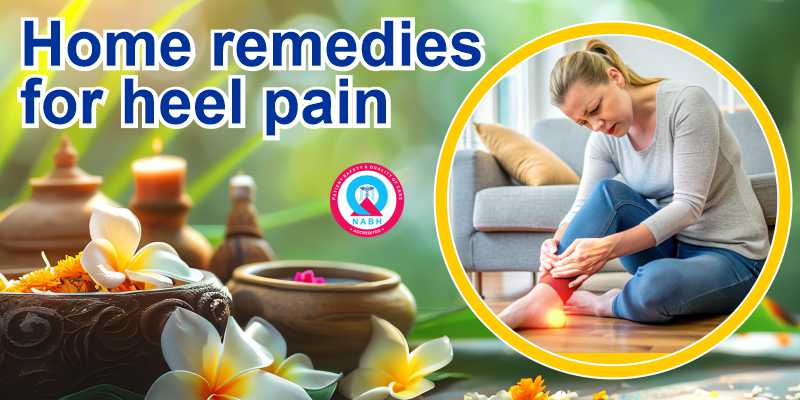
Heel pain is a common ailment in people of all ages, which is caused by plantar fasciitis, Achilles tendonitis, and overstressing of the feet. The ancient Indian system of medicine, Ayurveda, provides a holistic and effective remedy for heel pain by treating root causes and curing the person overall. Let’s look at the Ayurvedic treatment heel pain, home remedies, and Ayurvedic medicine for heel pain, while also pointing to several reasons for Ayurveda being regarded as the best Ayurvedic treatment in India.
According to Ayurveda, heel pain results from aggravated Vata dosha, which further leads to dry, stiff, and painful heels. Imbalances of Kapha can also increase the pain through swelling and heaviness. Treatment in Ayurveda is hence aimed at pacifying the aggravated doshas, improving circulation, and strengthening the affected tissue.
Warm Oil Massage (Abhyanga): Massage the heel using warm sesame oil, coconut oil, or Mahanarayan oil to relieve stiffness and improve blood circulation.
Hot-Epsom Salt-Eucalyptus Wash: Soak the feet in hot water containing Epsom salt and a few drops of eucalyptus oil. This is very relaxing and will help with inflammation and pain.
Herbal Decoction: Apply the area with a paste made of turmeric and ginger. These have anti-inflammatory properties that relieve pain and swelling.
Stretching Exercises: Gentle stretching of the calf muscles and plantar fascia can help improve flexibility and relieve tension in the heel.
Turmeric Milk: Drink warm milk combined with turmeric and a pinch of black pepper. Turmeric acts as a natural anti-inflammatory and helps strengthen the body from the inside and out.
Dashamoola: A decoction of Dashmool herbs used in Ayurveda helps relieve certain pain and inflammation related to aggravated Vata dosha.
Guggulu: Some medications containing Guggulu help reduce pain and swelling in the joints and in the muscles, provide relief, and improve mobility.
Shallaki: Shallaki is a renowned anti-inflammatory agent that manages pain and benefits joint health.
Ayurvedic hospitals in India offer the most in-depth and well-planned treatment for heel pain through therapies such as Panchakarma, which includes detoxification and rejuvenation procedures. Expert practitioners design treatment plans tailored to heal at the root level of heel pain. Karma Ayurveda has some of the best Ayurvedic kidney experts and practitioners holding years of expertise in the field who can guide you on the problems that are being faced by the person.
Natural Remedies: Ayurveda uses herbs, oils, and natural therapies to manage pain and inflammation without side effects.
Holistic Approach: While in allopathy the treatment of heel pain is symptomatic, Ayurveda addresses the cause; hence the results are more enduring.
Individualized Approaches: Treatments are designed according to the individual's dosha imbalances and health-specific considerations.
Wear Proper Shoes: Use comfy, supportive shoes to minimize stress on the heels.
Hydration: Drink enough water and herbal teas to maintain joint and tissue health.
Rest and Elevation: Allow rest to your feet frequently and elevate to help with circulation and swelling in the area.
Second Floor, 77, Block C, Tarun Enclave, Pitampura, New Delhi, Delhi, 110034